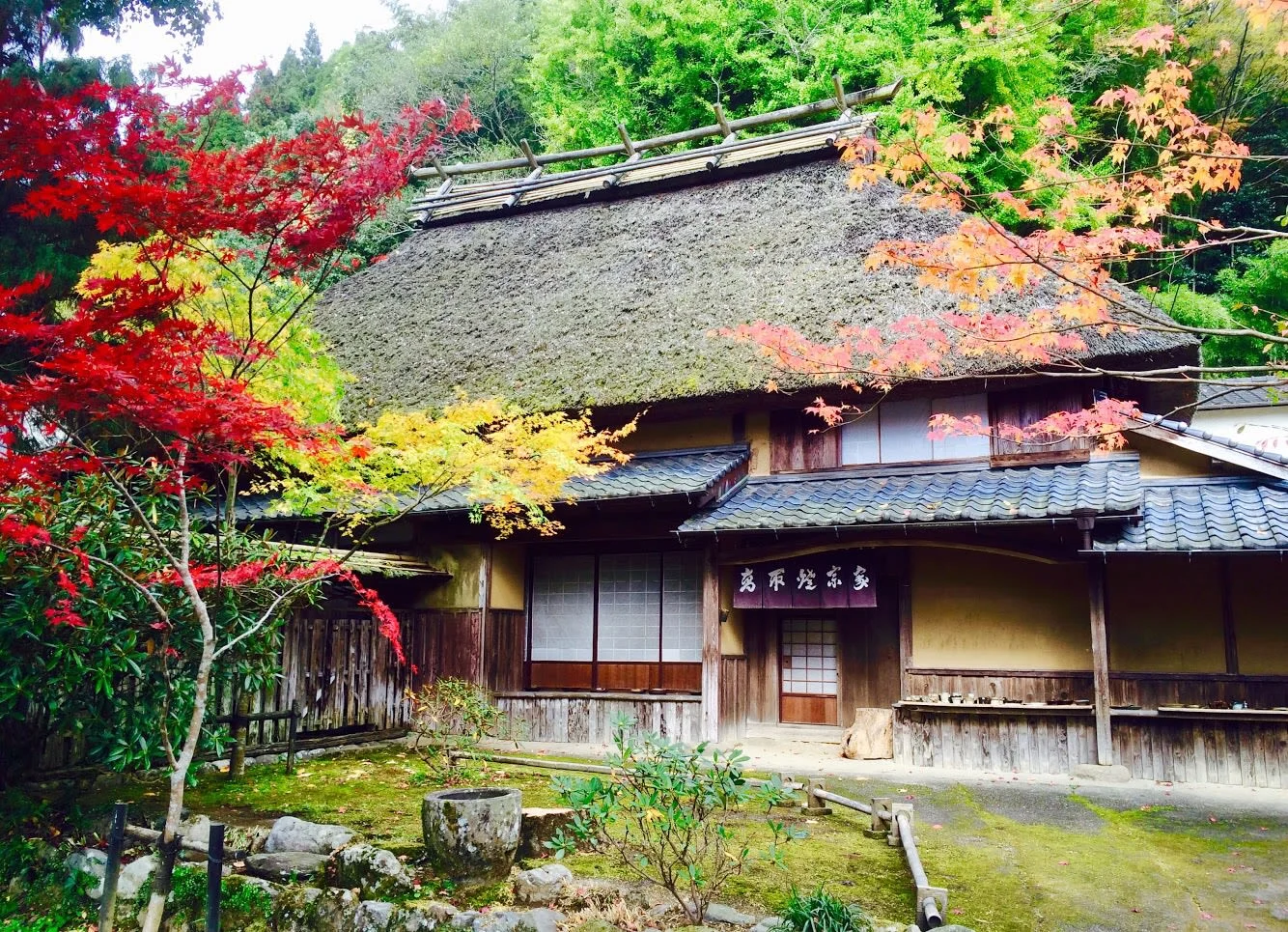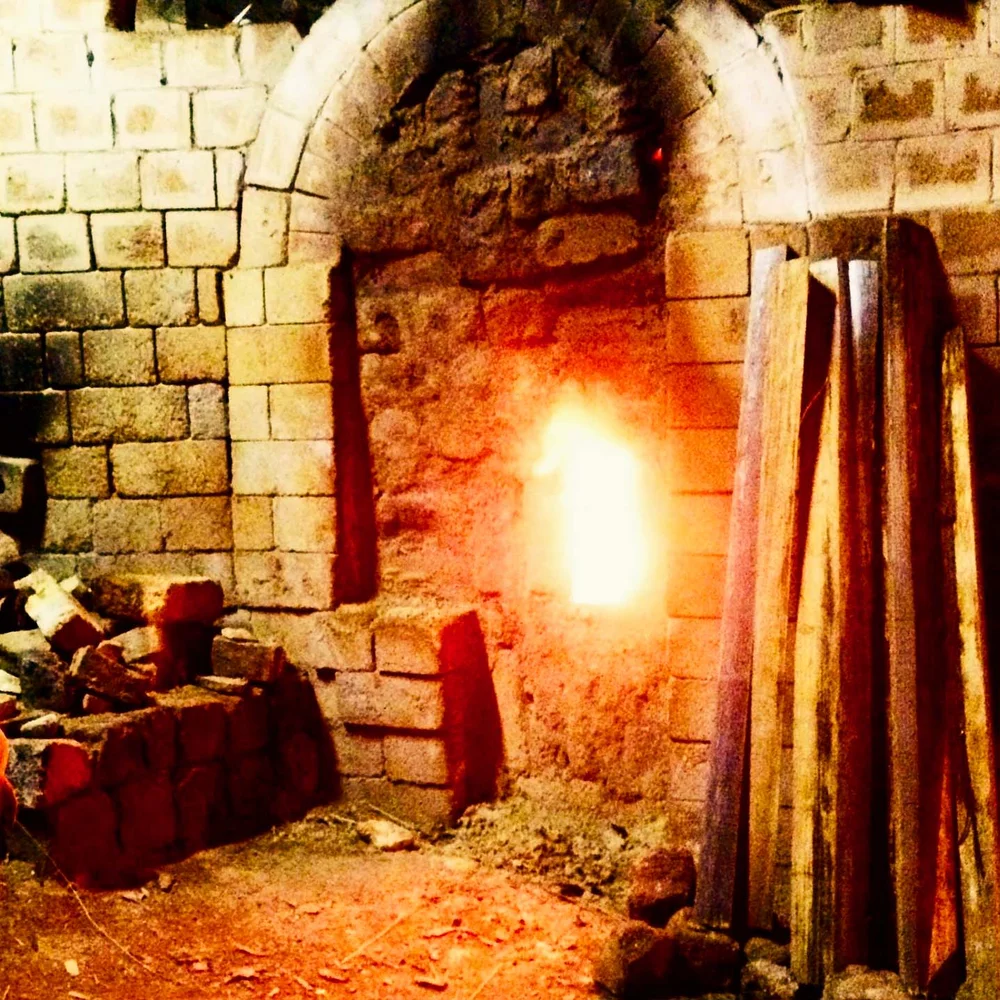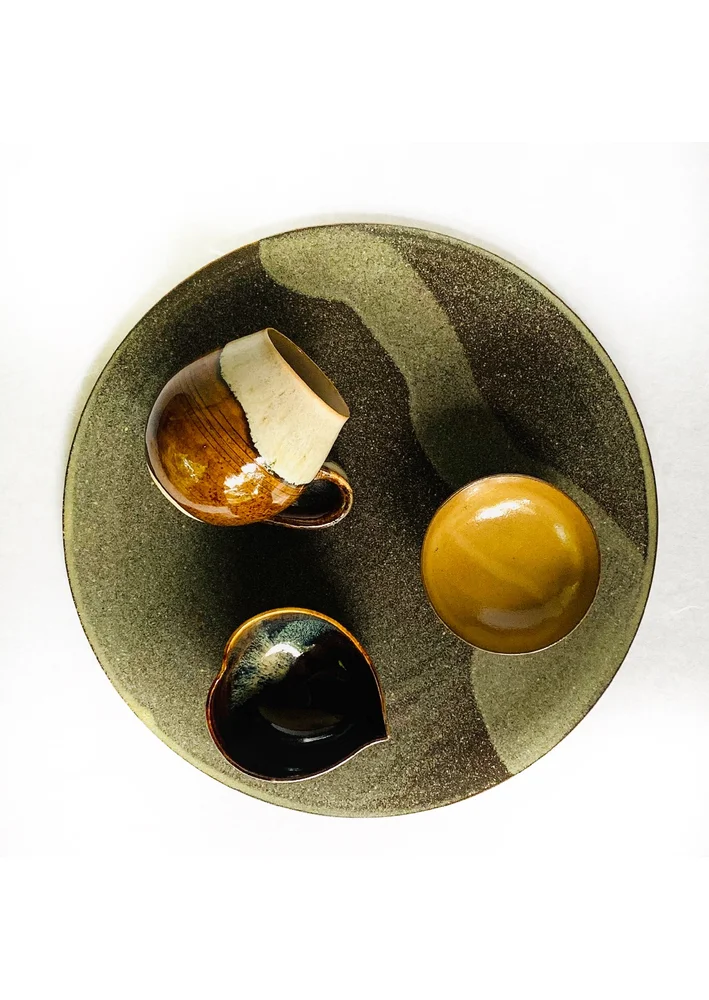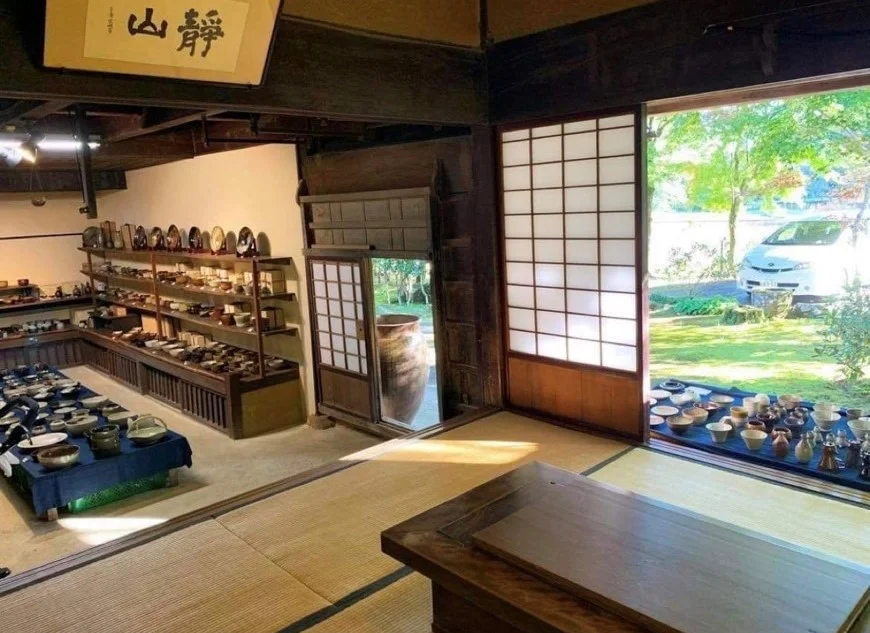Glaze Your Own Ceramic Tableware at a Takatori Ware Studio
Overview
Visit Takatoriyaki Souke to discover the rich history of the simple but elegant Takatori ware, one of Fukuoka’s homegrown ceramic wares. You'll not only tour this historically significant studio, but also try glazing your own Takatori ware.
Highlights
- Visit a studio run by descendants of the father of Takatori ware
- Learn about Takatori ware’s centuries-old history
- Choose from among a wide range of glazes to decorate your own Takatori ware
- Admire the understated elegance of Takatori ware
- Enjoy matcha tea and Japanese sweets in a tearoom where Sun Yat-sen once stayed
Key Information
Important Information
• Instructors cannot speak English, but will guide you through gestures • Delivery of your tableware is optional • Delivery to your address will take 2–3 months • Delivery fees vary per country; please pay in cash at the venue • Some parts of the studio may be slippery or difficult to walk in • Note there are no convenience stores or restaurants near the venue • For the add-on, only matcha tea and Japanese sweets will be served; it is not a tea ceremony
- Participants must be aged 18 or above
- Children (ages 0–17) may join the studio tour free of charge, but must be accompanied by an adult
- Guests of all ages may avail of the add-on Location: Takatoriyaki Souke, Asakura City, Fukuoka Prefecture • 20 minutes by taxi from Haki Station on the JR Kyushu Railway Hisatsu Line • 1 minute on foot from the Kamatoko bus stop via Nishitetsu Bus Getting there • The fastest and cheapest way to reach the venue is to take a bus to Kamatoko from Hakata Bus Terminal or Nishitetsu Tenjin Expressway Bus Terminal • The closest station to Hakata Bus Terminal is Hakata Station • The closest stations to Nishitetsu Tenjin Expressway Bus Terminal are Tenjin Station on the Fukuoka City Subway, and Nishitetsu Fukuoka (Tenjin) Station on the Nishitetsu Tenjin Omuta Line • There are very few buses to and from Kamatoko; intervals are irregular • On the way back, there are no buses from Haki to Hakata Bus Terminal; please get off at Nishitetsu Tenjin Expressway Bus Terminal • Bus schedules are subject to change • Please refer to the following sample bus routes to get to the venue: From Hakata to Kamatoko (weekdays) 07:48 — Take a Nishitetsu highway bus bound for Hita 09:14 — Arrive at Haki 09:37 — At Haki, transfer to another Nishitetsu bus to Kamatoko 10:30 — Arrive at Kamatoko From Tenjin to Kamatoko (weekdays) 08:07 — Take a Nishitetsu highway bus bound for Hita 09:14 — Arrive at Haki 09:37 — At Haki, transfer to another Nishitetsu bus to Kamatoko 10:30 — Arrive at Kamatoko From Hakata to Kamatoko (weekends and holidays) 09:26 — Take a Nishitetsu highway bus bound for Hita 10:44 — Arrive at Haki 10:56 — At Haki, transfer to another Nishitetsu bus to Kamatoko 11:45 — Arrive at Kamatoko • Please refer to the following sample bus routes to return to Tenjin: From Kamatoko to Tenjin (weekdays) 12:43 — Take a Nishitetsu bus to Haki 13:30 — Arrive at Haki 13:57 — At Haki, transfer to a Nishitetsu highway bus bound for Nishitetsu Tenjin Expressway Bus Terminal 15:04 — Arrive at Nishitetsu Tenjin Expressway Bus Terminal From Kamatoko to Tenjin (weekends and holidays) 13:47 — Take a Nishitetsu bus to Haki 14:30 — Arrive at Haki Station 14:57 — At Haki, transfer to a Nishitetsu highway bus bound for Nishitetsu Tenjin Expressway Bus Terminal 16:04 — Arrive at Nishitetsu Tenjin Expressway Bus Terminal
Booking (4 steps)
Duration
Included
For guests aged 18 and above: • Instructor • Materials • Disposable gloves • Your finished tableware
Not Included
For guests aged 18 and above: • Shipping • Matcha tea and Japanese sweets
What to Bring
• Your Booking confirmation email • Clothes that you don’t mind getting dirty
Meeting Point
Takatoriyaki Souke
Venue Address
Asakura City, Fukuoka Prefecture, Japan
Schedule
- Except Mondays, this activity is available daily from March to late December
- This activity starts at 10:30 on weekdays, and 11:45 on weekends and holidays
Glaze Your Own Ceramic Tableware at a Takatori Ware Kiln This activity lasts for about 1 hour and 40 minutes, and roughly follows this itinerary: Weekday Tour 10:30 — Tour the kiln 10:50 — Glaze your own ceramic tableware; shopping 12:10 — Activity ends
Weekend or Holiday Tour 11:45 — Tour the kiln 12:05 — Glaze your own ceramic tableware; shopping 13:25 — Activity ends
Ceramic Tableware Glazing with Matcha Tea and Japanese Sweets Add-on This activity lasts for about 2 hours, and roughly follows this itinerary: Weekday Tour 10:30 — Tour the kiln 10:50 — Glaze your own ceramic tableware; shopping 12:10 — Enjoy matcha tea and sweets 12:30 — Activity ends
Weekend or Holiday Tour 11:45 — Tour the kiln 12:05 — Glaze your own ceramic tableware; shopping 13:25 — Enjoy matcha tea and sweets 13:45 — Activity ends
Provided by
Takatoriyaki-souke.Ltd
Description
Takatori ware, or ‘Takatori-yaki’ in Japanese, is one of Fukuoka’s homegrown ceramic wares. This type of ware is characterized by its simple yet refined and elegant appearance. Despite their thin surface, these pieces of earthenware are coated with multiple layers of colored glaze. When flicked, they create a high-pitched sound, like that of porcelain.
With over 400 years of history, Takatori ware traces its origins to 1600, when the Korean potter Palsan (read as ‘Hachizan’ in Japanese; later changed to Hachizo) established a kiln at the foot of Mt. Takatori. Brought to Japan by the warlord Kuroda Nagamasa, Hachizan made bowls and other utensils for tea ceremonies.
Under the patronage of the Kuroda clan, Hachizan and his descendants continued to establish kilns and to create beautiful tea ceremony utensils. These works were named ‘Takatori ware,’ after the location of Hachizan’s first kiln, as well as his newly bestowed family name, Takatori.
Takatori ware’s style became more elegant and refined over time. As such, not only was it the Kuroda clan’s official ceramic, but, until the feudal system was abolished, it was the leading ceramic of the clan’s domain. Even Kobori Enshu — the famous tea ceremony practitioner who helped refine Takatori ware’s style — named one of Hachizan’s kilns as one of his seven favorite kilns.
Today, Takatori ware is largely known among tea-ceremony practitioners and enthusiasts. The techniques that Hachizan established in his latter years have been passed down to his descendants, who continue to preserve Hachizan’s legacy. His descendants run the Takatoriyaki Souke studio — the current patriarch, the 13th-generation head, is even named after Hachizan!
In this activity, you’ll visit Takatoriyaki Souke to not only look around the studio, but also to try glazing Takatori ware yourself. Learn about the history of Takatori ware, Takatoriyake Souke, and more. You’ll also have a look at rarely seen items such as a ‘karausu,’ a traditional, water-powered mortar used to smoothen clay.
Then, choose a piece of tableware and your preferred glazes. While most other workshops only offer two glazes, at Takatoriyaki Souke, you can choose up to three glazes from a range of 12 — all made with the Takatori family’s secret techniques. When you’re done, Takatoriyaki Souke’s skilled artisans will then fire your piece in a wood-fired kiln. To take your work home, have your ceramic delivered to your doorstep.
If you wish, end the activity on a relaxing note by enjoying matcha tea and Japanese sweets in a tearoom where the famed Sun Yat-sen, the founder of modern China, once stayed.
Visit Takatoriyaki Souke for a day’s worth of history and art!





